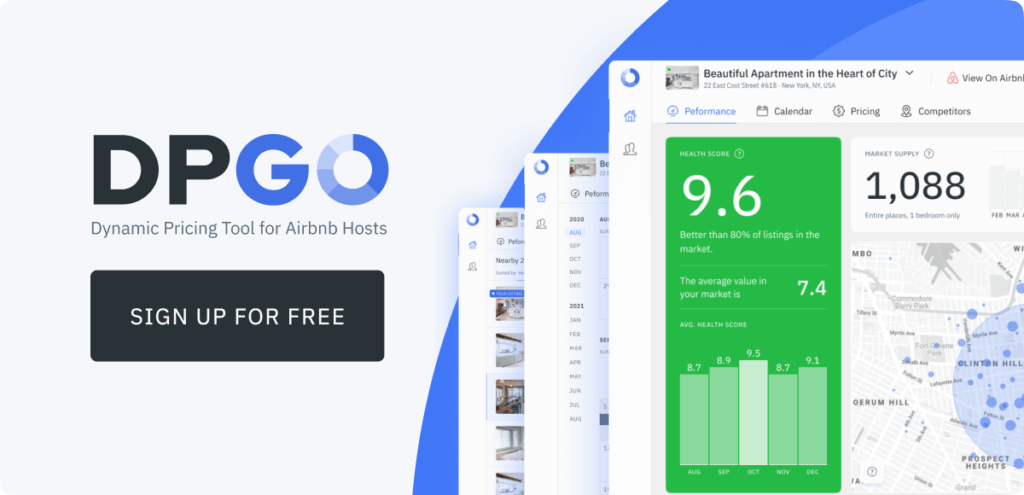For a large number of hosts, Airbnb renting on a short-term basis is an all-year affair. These hosts might have dedicated properties for monthly or long-term rentals, aimed at travelers or digital nomads looking for a place to stay for more than just a few nights.
Alternatively, they might be sharing their own home, creating extra income by hosting guests in a spare room or two. But let’s take a closer look at those who step into the role of an Airbnb host more sporadically, opening their homes only when they’re out of town or during specific seasons.
This approach to home sharing, while less common, offers a unique deal for those seeking temporary housing in various cities. These occasional hosts provide availability for guests who plan short visits or need a place for a month or two, potentially catering to a different segment of travelers.
Key Points to Consider:
-
Frequency of Listings: How often you list can range from a single night to several nights, or even longer stays.
-
Impact on Bookings: We’re exploring whether being an occasional host impacts the average number of bookings compared to year-round availability.
-
Income Generation: How does limiting availability to personal holiday times affect your overall income from Airbnb?
-
Host Success: We aim to shed light on how the duration of renting periods might influence a host’s success on the platform.
-
Market Demand: What can hosts expect in terms of popularity and demand in different cities depending on their listing’s availability?
This exploration aims to understand how the frequency of listings—affects an Airbnb host’s ability to secure bookings and generate income. Does limiting availability to just when the host is on holiday impact the average number of bookings and overall income compared to those who open their homes year-round?
We’re diving deep to find out whether the duration of renting periods influences a host’s success on the platform and what is expected in terms of popularity and demand in various cities.

The Flexibility of Occasional Airbnb Renting
The simple answer is yes, in the long run. Listing your home on Airbnb only when you’re away offers flexibility and a less intense commitment, perfect for those who cherish their personal space but wouldn’t mind earning an extra income.
This has especially high potential during peak seasons or city events where demand can spike, leading to higher nightly rates. But it’s not just about setting your price and waiting for guests; successful occasional renting requires attention to amenities, ensuring your home meets Airbnb standards, from Wi-Fi availability to cleanliness.
However, the sporadic nature of occasional renting brings its own set of challenges:
-
Booking Frequency: As an ‘occasional’ host, you won’t be overly concerned with occupancy rates, but what you want to avoid is listing your property after upgrading certain aspects at cost, and not getting any bookings.
-
Income Predictability: The income from occasional renting might not always align with your financial expectations, especially if significant earnings are the goal. Expect fewer reservations and lower income due to limited availability, affecting your presence on Airbnb and potentially leading to a lesser-known status.
-
Meeting Guest Expectations: Remember, whether it’s monthly rentals or just for a night, guests anticipate certain standards. Providing amenities like fast Wi-Fi, a clean and comfortable living space, and clear communication can enhance the guest experience.
-
Understanding Costs: Beyond the nightly rate, consider the cleaning fee, any added fees for additional guests, and the importance of stricter cancellation policies to protect your interests. These costs can affect both host and guest, influencing the decision to book or cancel a reservation.
Evaluating Potential Risks
Deciding to occasionally rent out your space is a balancing act between effort and expected profit. Consider not only the upgrades but also potential losses:
-
Damage and loss: The costs of renting out your home while you are away go beyond the upgrades you might have to make, it includes the mitigating of any potential risk. We will always recommend that you take out a vacation rental insurance policy, to be on the safe side.
-
Potential Risks: You should also charge a security deposit. Remember, if you’re renting out your residential home, there will be lots of sentimental items that cannot be replaced and even if you pack them away, accidents can still happen.
-
Local Demand and Competition: In popular destinations like California, the demand for short-term rentals can lead to higher income per booking. However, competition is also fiercer, so setting the right price and offering compelling amenities is crucial.
While the allure of additional income is strong, consider the time, cost, and risks associated with turning your home into an occasional Airbnb rental. Each reservation, from a quick visit to longer stays, demands your commitment to providing a quality experience while managing life’s regular demands.
Benefits and Challenges of Year-Round Airbnb Renting
Engaging in year-round Airbnb hosting can significantly increase the income from your property. By making your house or apartment consistently available, you tap into a larger pool of potential bookings, covering everything from brief city breaks to extensive stays for digital nomads.
Key benefits include:
-
Increased income due to higher booking rates.
-
Broad appeal to a variety of travelers.
-
Enhanced reputation on Airbnb, leading to more future bookings.
However, the commitment to continuous hosting presents several challenges. You need to manage your calendar to accommodate back-to-back bookings and ensure cleanliness between guests. It is also needed to address any unexpected issues that require considerable effort and time.
Challenges to note:
-
Time-consuming management of bookings and cleaning.
-
Reduced privacy from constant guest turnover.
-
Necessity to stay informed about local Airbnb regulations and compliance.
In cities with stringent Airbnb rules, understanding and adhering to legal requirements is crucial and can influence the long-term sustainability of renting out your space. Despite these hurdles, the decision to host year-round can be rewarding if approached with careful planning and realistic expectations.

Next Steps for Prospective Hosts
For those considering Airbnb hosting, start by evaluating your living situation, travel habits, and income goals. Ultimately, whether you choose year-round or occasional Airbnb hosting depends on your circumstances, goals, and ability to manage the responsibilities that come with being a host.
Both options offer unique opportunities and challenges. By taking a closer look at your availability, city’s travel patterns, and income needs, you can decide which approach best aligns with your lifestyle and financial objectives.
Research your city’s regulations and the demand for rentals, whether short or long-term. Remember, successful hosting is not just about creating a welcoming space for guests. It is also about understanding and leveraging the platform’s potential to meet travelers’ needs and maximize your bookings.

What Would We Do?
Generally speaking, we think Airbnb renting is an option for anyone who wants to try it! The only thing we will say is that you must ensure you are well aware of all of the possible drawbacks and rewards of renting. If you decide to go ahead with the project, you’ll need some help optimizing your listing.
When it comes to revenue management and dynamic pricing, there is nobody better than DPGO. Our AI-driven smart pricing tool will take your rates from “best guess” to data-driven targeted pricing designed to attract your target guests. We’re also offering a 30-day free trial for new users!
We want you to experience the benefits before we ask for some of your money! You can sign up for your free trial by clicking on the DPGO banner above.





1 Comment
Pingback: 9 Ways to Earn Extra Money - MyVenturePad.com